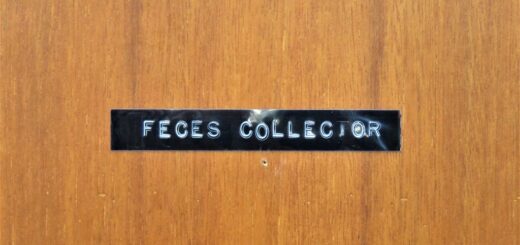A Fair Question About The U.S. Election
Over the past couple of days, two longtime readers have expressed disagreement with me (as they see it) over the issue of whether the 2020 presidential election was “fair.” In one case, I was directly challenged to answer whether I personally believe it was a fair election, the presumption apparently being that my dismissal of Trump’s whining “case” for overturning the result implies that I believe the election was pure as mother’s milk.
Since I respect the opinions of both readers, I have no qualms about entering into this discussion. And since I imagine there may be other readers with a similar curiosity about my view of the election’s level of fairness, my so-called “dislike of Trump” aside, I will take some time to address this question right now.
Do I think the election was fair? No, not in any sense of fairness that I would subscribe to. I do not even know what a fair U.S. election would look like anymore, because there are so many fraudulent elements to the process that it is unfair, in the sense of being dishonest and fundamentally unjust, long before the voting begins.
As for the actual voting process itself, I have already written about the basic injustice and anti-democratic nature of widespread, unconditional advance and absentee voting. That is an abomination. But it was allowed, and no Republicans stopped the implementation of that system in any state before the election, so they have no leg to stand on in opposing the results of that corrupt process now.
More essentially, however, I strongly believe — in fact, I assume for the sake of my sanity — that no election process that was truly above-board, transparent, and “unrigged,” could ever result in 99 percent of the electorate voting for either Joe Biden or Donald Trump, two thoroughly and manifestly unworthy candidates, both of them utterly laughable as humans, let alone as potential figureheads of a great republic. The “two-party system” is a complete lie and a sham. There is no such thing. It is a fabrication of financial schemers and the so-called military-industrial complex. Nothing could be more fundamentally unfair than the way politics in America has been reduced by nefarious interests, over generations, to something equivalent to a sports league, a self-contained and exclusive corporate club in which each year’s winners and losers are by definition restricted to the league’s member teams — of which, in this case, there are only two — and no one outside of the self-defined league is even allowed to compete.
As for the Trump claims of a “stolen election,” no one has a greater vested emotional interest in believing that claim than the megalomaniacal infant Donald Trump. He cannot accept losing, and he has never been able to accept it. In his addled mind, “winning” is the measure of worth, because winning means fame and love and universal approval, which are essential to his fragile psyche’s survival. He needs the election to have been “rigged” and “stolen,” and that is why he was warning of it in advance, as children do to protect their egos; and likewise why he was so quick to declare it “stolen” on election night (when he was not declaring it the securest election ever), even before his alternative media allies had come up with any semi-plausible theories of how this “theft” might have been achieved. It was simply self-evident to Trump that any explicit evidence of contested states tilting Biden’s way had to be implicit proof of widespread fraud. For the alternative interpretation would literally have annihilated Trump’s subjective world — the world in which all things Trump wants belong to Trump by default, and all humans accept and love Trump’s predominance in all things.
As for what happened, optically, on election night, with states that seemed to be Trump wins gradually turning into Biden wins, this late shift in the lead is hardly irregular in itself. It has always been my experience in watching election nights that rural and suburban areas tend to provide their vote counts more quickly, and big urban areas later. This may be due to sheer quantity, or due to city people at polling stations being dumber at math than rural people, but it is a normal pattern that always leaves me a little confused on election nights — and often frustrated, since we all know that city votes tilt heavily toward progressives, which means that the late-changing lead will typically fall “the wrong way.” And this year, with all the mail-in ballots (“due to COVID,” as they say), there would inevitably be even more late counting than usual, again mostly skewed toward Democrats.
This last fact is undoubtedly cause for serious concern — not because it suggests that millions of votes were simply created wholesale on a printing press, as the conspiracists would like to believe without evidence, but rather because it is a normal Democrat strategy to try to corral people into signing their names to things, pain and effort free, who would likely never have taken the trouble to travel to a polling station on election day on their own initiative. This is probably the single most prevalent way that progressives have systematically made a mockery of “the democratic process” over recent decades — by trivializing the vote, removing the most basic requirement of a reasonable election system, namely that each man’s vote itself be undertaken actively and determinedly, as a genuine act of self-government, rather than as the product of a cajoling effort that ends with some uninformed sucker grinning, “You mean, all I have to do is sign this paper?”
I am aware, further, that there are many observers, including my two correspondents, who accept that hard evidence of fraud will not be forthcoming, but who nevertheless just sense that something was weird about this election, or that the way the numbers came out did not look kosher somehow. I understand that it can seem reasonable, especially when wishes and emotions are involved, to reject an outcome on the grounds that, “I believe my own eyes,” or “Everything about this looks fishy.” For what it is worth, however, I must offer two replies to that gut instinct response to the election.
First, the truth is that emotions can make us “see” a lot of things that are not there, in the sense that we easily interpret events in ways that match our feelings and wishes. I don’t mean to condescend to anyone with this point. It is a glitch of human nature to which we are all susceptible, without exception. But one can hardly justify overturning an election result, such as it is, on the grounds that “something just feels wrong.” Evidence has to be the standard here. The political stakes and social implications are too high to allow anyone’s “gut” to decide whether an election was rigged, for the purpose of determining whether one must, in practice, live with the outcome. For that matter, I am quite sure there are seventy million Democrats at this moment whose gut is telling them that Biden’s lead should be wider than it is.
Secondly, that Texas “lawsuit” certainly gave grist to the mill of progressives who want to believe that “conservatives” are just undemocratic bullies at heart. All states’ rights issues aside, that case was in essence little more than disgruntled Trump supporters demanding that the U.S. Supreme Court overturn an election outcome on the basis of no evidence of essential wrongdoing, but merely in accordance with a feeling that wrong was done. In other words, it was effectively a demand that the justices of a republic’s supreme court — the men and women most directly invested with the constitutional duty to protect the principle of the rule of law above all else — reject the rule of law in favor of doing what just feels right.
Was fraud perpetrated in this year’s U.S. election? I have no doubts about that. This would hardly be the first such election, but in any case I might even be willing to grant that it could have been the most fraudulent ever. I would also request, however, that those who smell fraud widen their olfactory organ to take in the entire array of ugly odors wafting their way from Washington, D.C. If you are prepared to say, without being able to provide empirical proof, that this election was not fair, then you owe it to yourself and to the gods of democratic elections not to artificially limit your corruption detectors to one relatively minor wisp of the grand illusion that is America’s current political morass. This is not one-sided corruption. The Republican party is complicit in the demise of American institutions, including the fundamental institution of a representative republic, namely representation.
The election was not fair. No U.S. presidential election has been passably fair for a very long time. And none will be remotely fair in the foreseeable future. Donald Trump’s loss, however, is not what is fundamentally unfair about this year’s election. On the contrary, Donald Trump’s candidacy was an essential part of what was unfair about the election, and provides clear evidence — much more than just a gut feeling from someone who, as you might say, “dislikes Trump” — that I was right, perhaps even a little late, when I declared the 2012 election the very last one of any real significance in modernity’s now-unstoppable descent.

